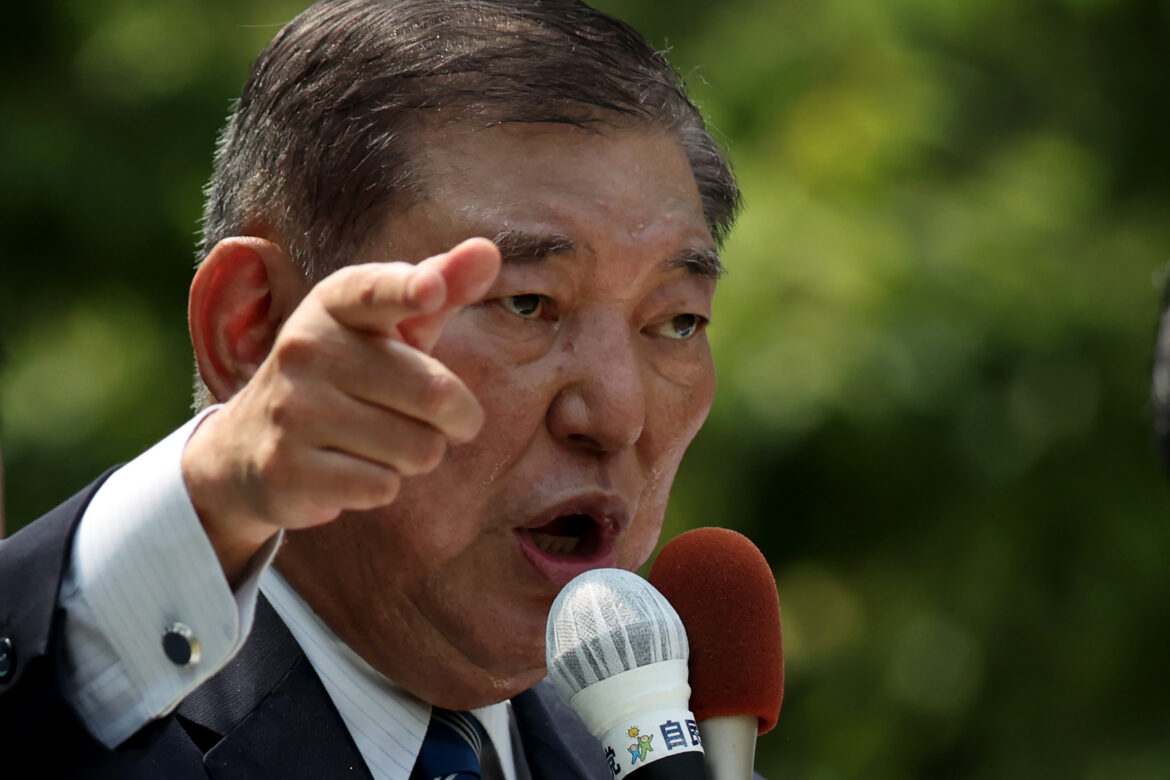For the country known as the ‘Land of the Rising Sun’, the sun is only just still shining on the prime ministership of Shigeru Ishiba. When will it set? The recent legislative elections will go down in history for all the wrong reasons, marking the first time in 70 years that Japan’s ruling Liberal Democratic Party (LDP) has lost control of both chambers of the legislature. Ishiba’s crisis of popularity comes at a precarious moment for Japan, as it continues to be engulfed by an unholy trinity of domestic economic woes, threats of tariffs from Washington, and ongoing security challenges across East Asia.
The LDP was already struggling to lead a minority coalition government with its junior coalition partner, Komeito, but now the LDP-Komeito coalition only holds 122 of the 248 seats in the Japanese parliament. For a country which has gained infamy for its ‘one-and-a-half party system’, wherein the LDP has been in power almost continuously since 1955 – bar two occasions – this was the first time in its history that it was no longer in control of the upper and lower houses.
A day before the election, I encountered a rally outside a subway station in Osaka, where a fringe right-wing movement was taking centre stage to rapturous applause. Volunteers from other minority parties were tempting passers-by with leaflets. For all their differences in creed, all these parties opposed Ishiba, in no small part owing to the country’s current economic and social maladies. Visitors to Japan may rejoice in a weak yen, but rising inflation, social security reforms, and lowering wages are just a few of the problems facing Asia’s third-largest economy. Taking a leaf out of the playbook of none other than Keir Starmer, Ishiba wrongly hoped that taxation, particularly consumption tax, would catalyse stability.
It was not just Japan’s economic woes that compelled many voters to shun the ruling party on election day. Although foreign-born residents amount to only 3 per cent of Japan’s 124 million population, immigration became a highly pervasive talking point as voters headed to the polls. The rise of minority fringe parties was in part responsible. Sohei Kamiya, the leader of a right-wing party, Sanseito, gained global attention having declared his admiration for Donald Trump. Sanseito’s anti-globalist, anti-elite, and ‘Japan First’ stance resonated with voters: the party gained 14 seats in the upper house.
Japan’s economic malaise has consequences beyond its borders. For the first time in over 25 years, it has had to import rice from South Korea, which has recently experienced political tumult of its own. While Seoul may fill Tokyo’s rice bowls for now, historic tensions between the two countries rumble on. The current leftist South Korean president, Lee Jae-myung, has previously criticised his conservative predecessors for being ‘pro-Japanese’, not least with respect to the necessary military exercises between the United States, South Korea and Japan. Tokyo’s ties with Pyongyang remain another minefield of unresolved issues. Walking through a subway station, I saw a government sign calling for the return of all Japanese citizens abducted by North Korea in the 1970s and 1980s. Nearly 50 years later, Ishiba’s calls for dialogue with North Korea to initiate their return have fallen on deaf ears.
Despite their divisions, Japan and South Korea face an increasingly threatening regional security environment. While Japan constitutionally renounces belligerence, questions of its acquisition of nuclear weapons – which have lingered for over five decades – are hardly abating. Although South Korea would be more likely to nuclearise first, given the immediate nuclear threat faced from North Korea, the fact that North Korean missiles land in Japanese waters only highlights how the nuclear threat from North Korea is anything but far away from Tokyo.
While Japan’s fringe parties of left and right remain minority parties for now, the fact that they are starting to capitalise upon voter frustrations means suggests that they are on the up, not the down. When the sun sets on Ishiba, who will follow him?


AloJapan.com